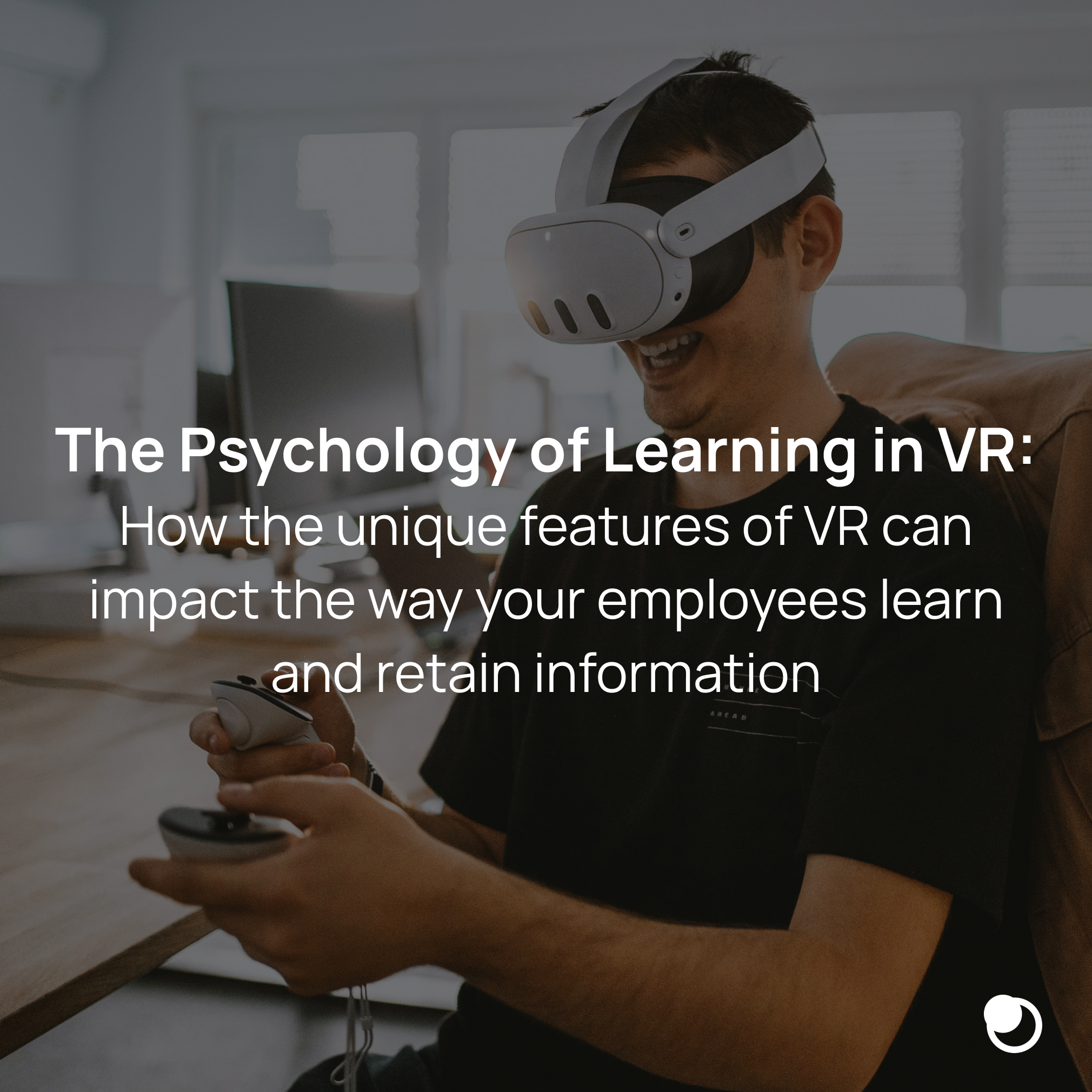
We often read and hear about how VR is an effective change to traditional training methods such as e-learning and classroom learning, but what about examining how the unique features of VR training can impact the way employees learn and retain information?
Whilst VR challenges the conventional methods of training and its effectiveness is frequently discussed, delving into the psychology of learning within virtual environments reveals the cognitive enhancements that can reshape how your employees can acquire and retain information.
Immersive Engagement
VR’s ability to immerse individuals in simulated environments marks a huge shift in the learning experience. Traditional training methods often struggle to capture attention, leading to disengagement and reduced information retention. In contrast, the immersive nature of VR captivates learners from the start. As learners find themselves transported to realistic scenarios, their senses become actively engaged, creating an even greater connection between the learner and the content.
This heightened sense of presence promotes a deeper level of understanding. The brain, wired for spatial awareness, thrives in an environment where information is not merely presented but experienced. VR’s immersive engagement goes beyond surface-level learning, allowing employees to explore, interact, and internalise information in a way that mirrors real-world situations.
Enhancing Focus and Retention
One of the key challenges in traditional training is the cognitive load imposed on learners. Distractions, competing stimuli, and the monotony of information delivery contribute to cognitive fatigue, negatively affecting the learning process. VR, however, offers a unique solution by creating an environment where distractions are minimised, and attention is directed towards the content.
As learners become fully immersed in a virtual environment, cognitive load is effectively reduced. The brain can focus on the task at hand without the interference of external factors, leading to improved concentration and enhanced retention of information. The spatial presence and interactive elements inherent in VR not only streamline the learning process but also make it more enjoyable, fostering a positive association with the training content.
Experiential Learning
The gap between theoretical knowledge and practical application is a challenge found in training. VR bridges this gap by providing a platform for experiential learning. Employees can actively engage in environments that mimic real-world situations, allowing them to apply these concepts in a risk-free environment.
This hands-on approach not only boosts confidence but also reinforces learning through muscle memory. The psychological impact of physically interacting with virtual elements creates a lasting imprint on the learner’s mind, facilitating a smoother transition from the virtual environment to real-world risks.
Tailored Training
Every business and individual learns differently, and catering to diverse learning styles is key to effective training. VR, with its adaptability and flexibility, excels in providing personalised learning experiences. The virtual environment can be customised to accommodate various learning preferences, ensuring that each business receives a tailored training program. This personalised approach not only enhances engagement but also addresses the individualised requirements of employees and businesses, creating a more effective and inclusive learning environment.
In conclusion, the psychology of learning in VR goes beyond the surface to explore cognitive engagement, attention enhancement, experiential learning, and tailored training. As organisations embrace the transformative power of VR, they unlock a new realm of possibilities for employee development.
The unique features of VR not only make learning more effective but also contribute to a positive shift in the overall training experience. By understanding and harnessing the psychology of learning in VR, businesses can create training programs that not only impact knowledge but also leave a lasting impact on the minds of their employees, driving them toward business success.
Contact us here for more information about MOONHUB training.








